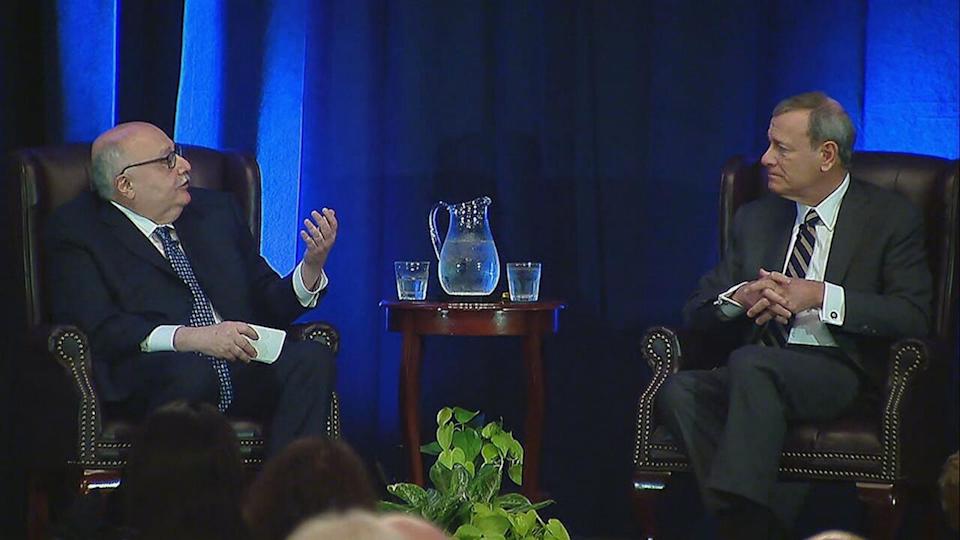In a moment of constitutional clarity delivered with measured urgency, Chief Justice John Roberts made an unmistakable stand for the independence of the judiciary Wednesday night in Buffalo, New York. The setting was calm — a fireside chat in his hometown — but the subtext was charged. Amid rising tensions between the Trump administration and the federal courts, Roberts’ words echoed with a quiet, but firm, resistance.
“Our Constitution creates a coequal judiciary,” Roberts reminded the audience. “Its job is to... check the excesses of Congress or the executive, and that does require a degree of independence.” Though he carefully avoided naming President Trump, the timing and tone of his message made the context unmistakable.
The remarks come as President Trump’s second-term immigration agenda — including mass deportations under the rarely invoked Alien Enemies Act — has faced immediate resistance in the courts. One federal judge went as far as ordering deportation planes to turn around mid-flight, a dramatic intervention that underscored the friction between judicial oversight and executive ambition.
Trump, never one to remain silent, has fired back with equal vigor. On Wednesday he posted on Truth Social: “Our Court System is not letting me do the job I was Elected to do. Activist judges must let the Trump Administration deport murderers... WITHOUT DELAY!!!”
It’s part of a wider pattern: Trump and his allies increasingly portray the judiciary as an obstacle to national sovereignty and public safety, while Roberts — perhaps the most influential judicial figure in modern American history — is signaling that constitutional safeguards must not yield to political expediency.
Roberts is famously cautious, rarely stepping into the political fray. But even he broke precedent earlier this year when he issued a rare public rebuke of Trump’s call to impeach judges who ruled against his immigration orders. “Impeachment is not an appropriate response to disagreement concerning a judicial decision,” Roberts said in March. “The normal appellate review process exists for that purpose.”
Legal experts saw Roberts' recent remarks as an extension of that rebuke. “He’s not just defending judges — he’s defending the idea that law must operate independently of politics,” said former prosecutor Jeffrey Toobin on CNN. “This is aimed not just at Trump, but at the entire administration’s posture toward the judiciary.”
Former Palm Beach State Attorney Dave Aronberg noted the subtlety of Roberts’ approach. “He tries to avoid any appearance of partisanship,” Aronberg wrote. “That’s why his mild rebukes of President Trump and Congress speak volumes.”
But not everyone is applauding the chief justice’s restraint. Conservative legal activist Mike Davis accused Roberts of allowing “activist judges to sabotage American voters” and called on Congress to take action through “oversight hearings, jurisdiction-stripping, and funding cuts.”
These calls suggest that the battle over judicial independence may soon shift from rhetoric to legislative action.
The Trump administration has now petitioned the Supreme Court to greenlight the revocation of Temporary Protected Status (TPS) for over 300,000 Venezuelans. It’s a decision that could affect lives and legal precedent for years to come — and it puts Roberts and the Court in the eye of another political storm.

